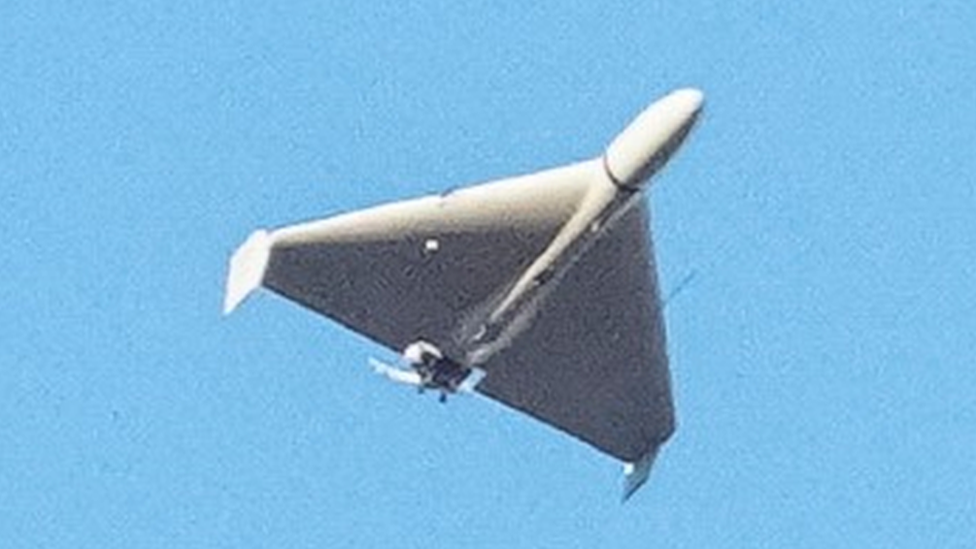Ukraine war: Russia hits back after Kyiv attack on border city
- Published
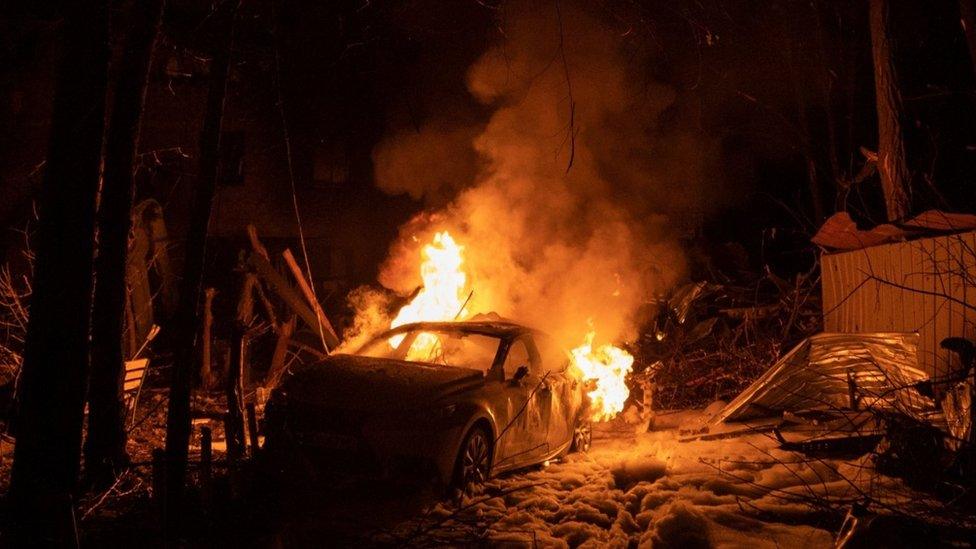
Russia has been striking Kharkiv in recent days
Ukraine has come under attack by Russian air strikes again, officials say, after two days of major aerial assaults by both sides.
Most attacks were concentrated on Kharkiv in the east, but explosions were also reported elsewhere.
Moscow said it was retaliating against Ukrainian strikes on the Russian border city of Belgorod on Saturday, which killed at least 24 people.
That came after Russia carried out air strikes across Ukraine on Friday.
Kyiv said those Russian attacks, which killed at least 45 people, were the biggest missile bombardment of the war so far.
The latest Russian strikes happened as Ukraine entered its final day of 2023.
Russia's defence ministry said the attack on Kharkiv, including on a hotel, was a direct response to Saturday's strikes on Belgorod, and that it had used high-precision missiles to hit military targets in the city.
However, Ukraine says not a single military facility was hit. A defence ministry spokesperson told local media that Russia deliberately hit civilian infrastructure to cause as much damage as possible.
On Sunday, Ukraine's air force reported it had destroyed 21 of 49 Russian drones launched overnight, with most attacks aimed at the Kharkiv, Kherson, Mykolaiv and Zaporizhzhia regions.
Ukraine's air defence systems in the region surrounding the capital Kyiv were also engaged late on Saturday to repel a Russian drone attack, the military administration of the region said on Telegram.
The regional governor of Kharkiv said that 28 people had been hurt after at least six missiles hit the city near the border with Russia overnight.
Ukraine's interior ministry also reported damage to 12 blocks of flats, 13 homes, hospitals, a hotel building, a kindergarten, commercial premises, a gas pipeline and cars.
"These are not military facilities, but cafes, residential buildings and offices," Kharkiv's mayor Ihor Terekhov said on Telegram.
"On the eve of the New Year, the Russians want to intimidate our city, but we are not scared - we are unbreakable and invincible."
In the southern region of Kherson, the governor also reported two people killed by Russian shelling.
The latest attacks come after a deadly couple of days in Ukraine and Russia.
Russia's massive bombardment of Ukraine on Friday killed dozens and injured nearly 160. Several cities were attacked, including the capital, Kyiv.
Kyiv's military administration chief Serhiy Popko said on Sunday that more bodies have been recovered from the rubble of a warehouse that was hit by an air strike - taking the total number of people killed in air strikes on the city to 22, and the overall death toll across Ukraine from Friday's attacks to at least 45.
Even before more people were pulled out of the wreckage, the city's mayor Vitali Klitschko had described the attacks as the deadliest day so far for civilians in the city.
Saturday saw Ukrainian attacks on south-west Russia, near the border with Ukraine, which a Ukrainian security source told the BBC was a "response to Russia's terrorist attacks on Ukrainian cities and civilians".
The regional governor for Belgorod said on Sunday that 24 people were now known to have died in the attack.
Vyacheslav Gladkov says four children were among the dead in what was one of the deadliest attacks on Russia since it invaded Ukraine.
More than 100 people were also injured in the attacks on Belgorod city, the region's administrative capital near the border.
The Ukrainian security source said more than 70 drones had been launched against Russian targets.
Addressing the situation in Belgorod, they blamed civilian casualties on the "incompetent work of Russian air defence" - saying this was what caused falling fragments.
Moscow has repeatedly accused Ukraine of being behind drone strikes in recent months. Kyiv rarely admits to such attacks across the border, although it has carried out strikes like this before.
At a UN Security Council meeting requested by Russia to discuss Kyiv's strikes on Saturday, several countries stressed that Russia was paying the price for invading Ukraine and starting the war.
"If Russia wants someone to blame for the deaths of Russians in this war, it should start with President Putin," the British envoy to the UN Thomas Phipps said.
Watch: Dashcam footage shows strikes hit Russian city
Related topics
- Published29 December 2023
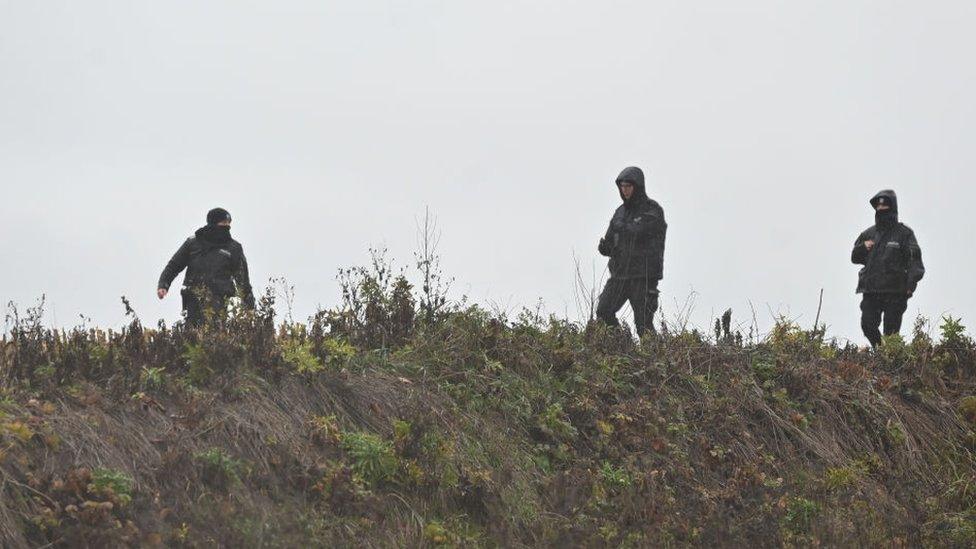
- Published29 December 2023
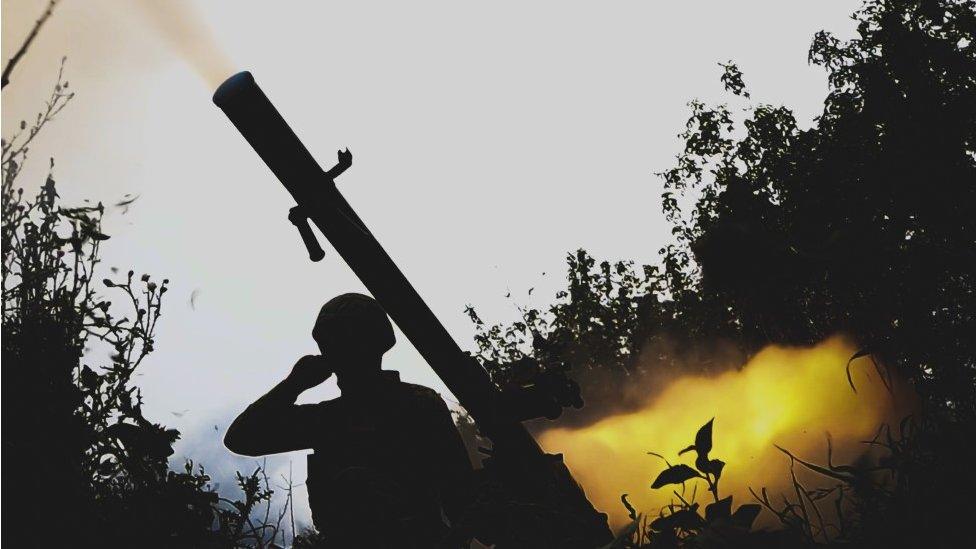
- Published29 December 2023
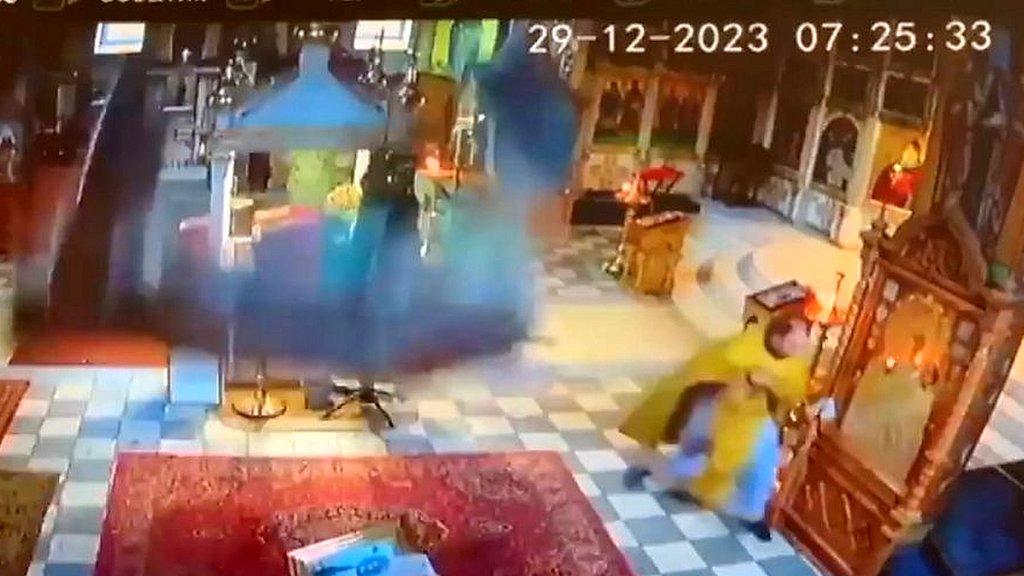
- Published29 December 2023
